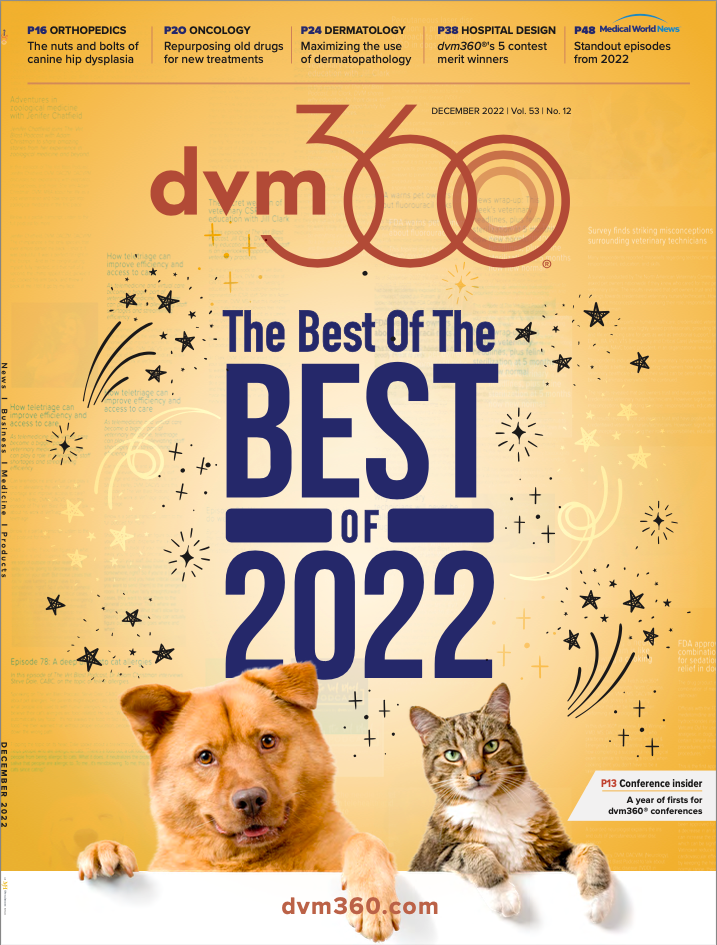Where did my doctor go?
The challenges surrounding the protocol when a veterinarian leaves a practice and clients ask where they have gone
Editor’s note: All names and businesses in this dilemma case are fictitious, but the scenario is based on real occurrences.
BillionPhotos.com / stock.adobe.com

King Animal Hospital is a small animal practice in a suburban community. There were 4 veterinarians and 20 support staff members. The competitive practice was progressive and had grown quickly to serve the expanding community and recent increased pet ownership. The veterinary clinicians at King Animal Hospital were both highly skilled and uniquely personable. They were a diverse group prioritizing client relationships and interactions. It was typical for one of the doctors to give her clients her cell phone number so they could contact her directly when necessary. Another clinician often invited pet owners to dance recitals where his passion for ballroom dancing was put on display. There was always a risk in giving pet owners this type of access for fear of them abusing the privilege for nonemergent situations. The positive side, of course, was a devoted clientele with tremendous practice allegiance.
Recently, it was brought to the owner’s attention that a longtime veterinary staff member, Dr House, had decided to leave the practice. He had the opportunity to obtain an ownership stake in a practice about 15 miles away in a different town. He had given the owner his mandated 60-day notice and would not be in violation of a mutually agreed upon 10-mile restrictive covenant. This was a setback for the practice owner. He felt that he had always treated Dr House fairly and saw his leaving as a bit of a betrayal. He understood that the staff veterinarian was deciding his future career path. Nevertheless, the hospital owner felt that he was owed a discussion about how he could assist Dr House with his future endeavors. He was disappointed that Dr House simply made a decision without any consultation with his boss.
The 60 days passed, Dr House departed from the practice, and King Animal Hospital continued to thrive and survive. The next immediate challenge that presented itself was how to inform clients who inquired about Dr House’s whereabouts. The receptionist and doctors were constantly asked where he had gone. They were not sure how they should respond and asked for direction from the practice owner.
The practice owner was still angry about losing his valued associate. He instructed the staff to inform clients that Dr House had moved on and no longer worked at King Animal Hospital. When asked how they could contact Dr House, they were told to say they did not have that information. They were further advised to tell clients they could contact the local veterinary association to see if they had an updated contact for Dr House. Several of the staff members were not happy with the information they were instructed to give to the clients. They asked to meet with the hospital owner to discuss the situation.
The hospital owner felt no obligation to send his clientele to Dr House by offering contact information. Several staff members felt it was important to be honest and transparent with their clientele and inform them of Dr House’s new workplace. At the same time, they found it important to emphasize to these clients that King Animal Hospital continues to be available to assist them with all their veterinary needs. It was decided that a professional and ethical approach to this problem was to first contact Dr House and ask if inquiring clients could be given a contact number. Second, it would be stressed to all inquiring clients that it was the wish of the King Animal Hospital to continue to care for their valued pets. Finally, there would be no derogatory inference when commenting about Dr House’s departure.
Just how much obligation do you have to a departing veterinary staff member? Do you think that King Animal Hospital did too little or too much when it came to client information about the whereabouts of a newly departed veterinarian? We would like to know.
Rosenberg's response
The reality is that veterinary medical practices are businesses. Valued staff, even beloved staff, come and go. Regardless of the emotions attached to these events, practice staff members must always act in a professional and ethical manner. The practice owner in this dilemma initially was dishonest with his inquiring clientele. He soon realized that the ethical approach was to honestly inform clients while at the same time encouraging them to continue their pet care at his clinic. Ill will among colleagues never serves clients, pet patients, or the veterinary community.
Marc Rosenberg, VMD, is director of Voorhees Veterinary Center in Voorhees, New Jersey. Although many of the scenarios Rosenberg describes in his column are based on real-life events, the veterinary practices, doctors, and employees described are fictional.
